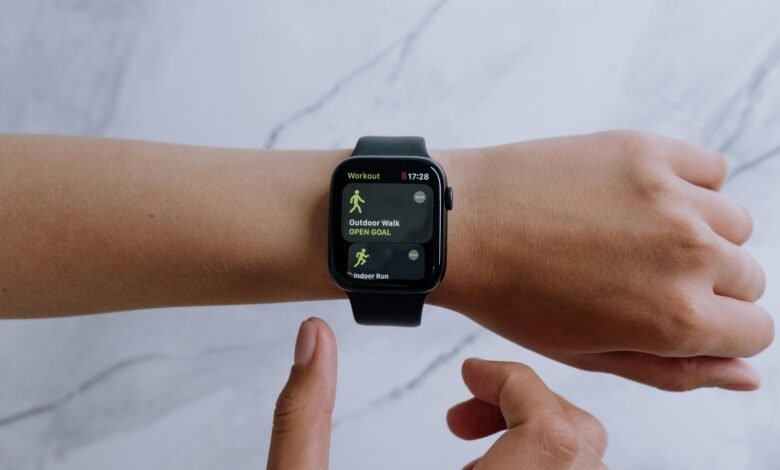Top Health Tech Trends to Watch in 2022

The intersection of health and technology is never static. It’s a rapidly evolving landscape that brings forth positive revolutions in patient care, medical research, and the overall health industry. Whether you’re a healthcare provider, a tech enthusiast, or just someone who is passionate about personal well-being, understanding the latest health tech trends is crucial. It not only keeps you informed but also provides you with the tools you need to make better decisions about your health.
In 2022, certain health tech trends stand out as they continue to transform the way we approach healthcare. From AI’s significant advancements to the ethical challenges surrounding data security, this is a year where technology is influencing the health sector more than ever before. In this comprehensive guide, we will explore the top health tech trends to watch and understand how they’re shaping the future of health
Telemedicine Advancements
Telemedicine has been on the rise for the past several years, but it saw an unprecedented surge due to the necessity of remote care during the COVID-19 pandemic. In 2022, we are witnessing even more sophisticated advancements in telemedicine, offering further convenience and accessibility in healthcare.
Remote Patient Monitoring
Remote patient monitoring (RPM) technology allows healthcare professionals to track a patient’s health data in real-time, often from a different location. This is especially beneficial for individuals with chronic conditions who need continuous monitoring without frequent hospital visits.
Virtual Consultations
The virtual consultation model has become more refined with better user interfaces, integration with patient’s electronic health records, and streamlined payment systems. This ensures that the patient’s experience isn’t just more convenient, but also more sophisticated and personalized.
Telehealth Platforms
Telehealth platforms, which provide a range of services from virtual appointments to e-prescriptions, are becoming more comprehensive. They are designed for multiple uses, from post-op care to mental health therapy, making them an all-encompassing tool for healthcare providers to serve their patients.
Artificial Intelligence in Healthcare
AI’s role in healthcare is becoming more defined and indispensable. With the ability to process massive datasets and identify patterns that humans might miss, AI is making diagnostics and treatment recommendations more accurate and personalized.
Diagnosis and Treatment Recommendations
AI applications are excelling in areas such as radiology, where they can analyze medical images and assist with diagnosis at a fraction of the time it takes a human, helping to alleviate the burden on overworked healthcare professionals.
Predictive Analytics for Personalized Care
Health organizations are leveraging AI to predict disease outbreaks, inform patient personalization strategies, and provide early disease detection and prevention. This personalized approach can have a significant impact on the effectiveness of treatment.
AI-Driven Drug Discovery
Pharmaceutical companies are using AI to sift through vast libraries of molecular data to identify potential drug candidates. This streamlined approach to drug discovery is accelerating the development of new treatments and increasing the likelihood of successful trials.
Wearable Technology Innovations
Wearable devices are no longer just about counting steps or tracking sleep patterns; they are turning into powerful health monitoring tools that allow individuals to take more proactive roles in their well-being.
Health Tracking Devices
Health tracking devices, from simple pedometers to sophisticated wearable ECG monitors, are becoming more accurate and affordable. This enables individuals to monitor their health more effectively and engage in preventive health measures.
Smartwatches and Fitness Trackers
Beyond the plain vanilla fitness tracking, smartwatches and fitness trackers now offer features like irregular heart rhythm notifications, ECG recordings, and SpO2 tracking, which can be crucial for the early detection of health issues.
Continuous Health Monitoring
The future of wearables is in continuous health monitoring, where devices don’t just collect data— they analyze it and provide real-time updates on your health status. This could revolutionize how we think about monitoring and managing our health on a day-to-day basis.
Data Security and Privacy Concerns
With the rapid digitization of health records and the increasing reliance on data analytics, the importance of data security and patient privacy has never been more crucial. In 2022, the health tech industry is placing more emphasis on safeguarding sensitive medical information.
Compliance with Regulations
Regulations such as HIPAA and GDPR are evolving to keep up with the changing digital ecosystem. Health tech companies and healthcare providers are working hard to ensure their practices are compliant with these laws to avoid hefty fines and, more importantly, to uphold patient confidentiality.
Safeguarding Sensitive Health Data
Encryption, multi-factor authentication, and regular security audits are becoming standard practices to protect sensitive health data from cyber-attacks. Health organizations are also ensuring that their digital infrastructure is robust and secure.
Importance of Encryption and Secure Networks
End-to-end encryption and secure network protocols are critical elements in guarding patient data. With the proliferation of ransomware and other cyber threats, the health industry is implementing more sophisticated security measures to prevent data breaches.
Blockchain Applications in Healthcare
Blockchain technology is gaining popularity in the health sector due to its potential to offer unprecedented security and integrity in managing health data. In 2022, we are witnessing the early adoption of blockchain applications in various healthcare processes.
Secure Medical Records Management
Blockchain offers a secure and unchangeable way to manage medical records, ensuring that patient data is tamper-proof and always accessible by authorized parties. This could lead to smoother interoperability and more trust between patients and their healthcare providers.
Improved Interoperability
One of the major challenges in healthcare is the lack of interoperability between different systems. Blockchain could serve as the backbone for a more connected health ecosystem, where information can be securely shared across different platforms.
Supply Chain Management in Pharmaceuticals
The pharmaceutical industry is using blockchain to manage the complex supply chains of drugs. This technology enables real-time tracking of drugs, from production to delivery, which is vital for quality control and combating counterfeit drugs.
Conclusion
The top health tech trends of 2022 are not just about advancing the industry; they are also about enhancing the quality of care and patient experience. Whether it’s through the convenience of telemedicine, the precision of AI, the empowerment of wearable devices, or the security of blockchain, technology is playing an increasingly important role in shaping the future of health.
It’s essential to stay informed about these trends and be prepared to incorporate them into our lives and practices. By doing so, we can ensure that we are at the forefront of a health revolution that prioritizes accessibility, personalization, and protection. Keep an eye on these trends and consider how you can use them to heighten your health and those around you. This year presents a world of potential in health tech, and it’s up to us to make the most of it.



